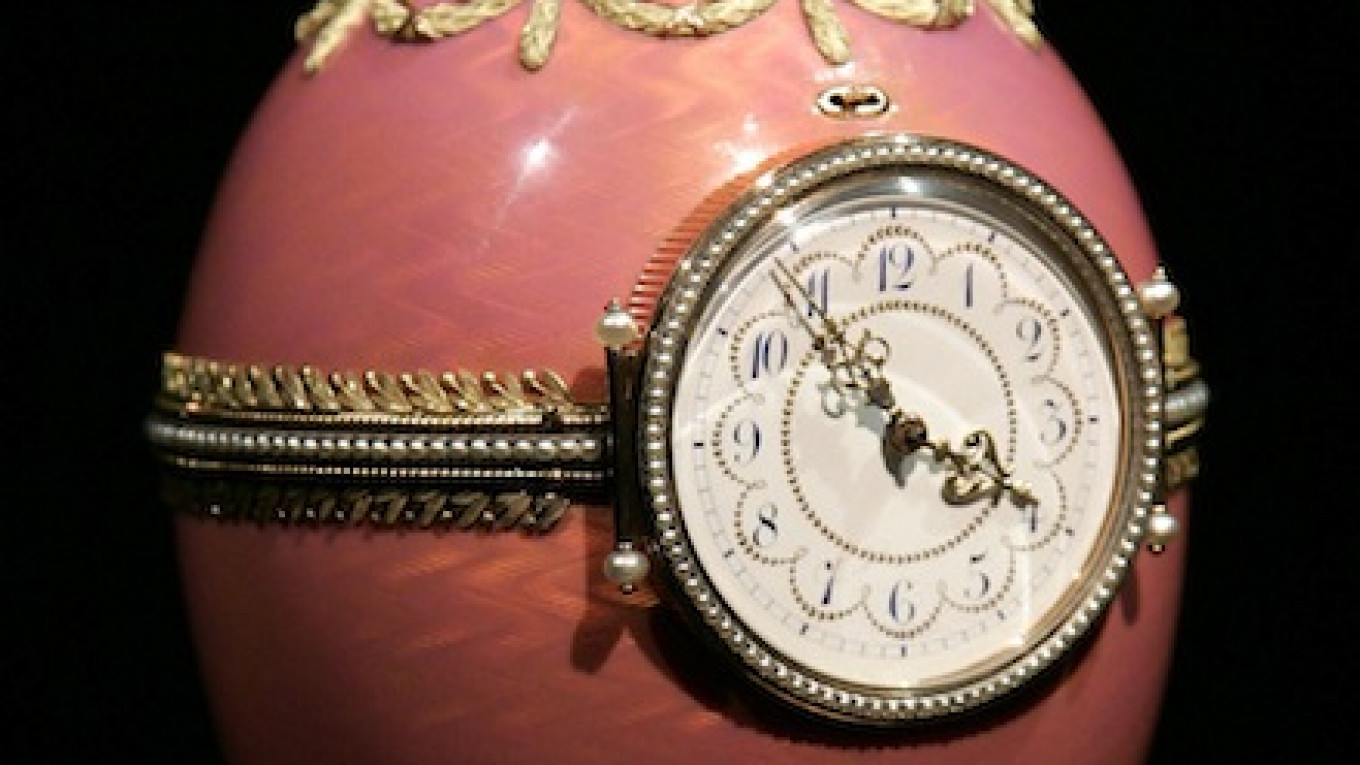President Vladimir Putin has presented St. Petersburg's Hermitage Museum with a Faberge egg to mark the institution's 250th anniversary.
"As is customary in these situations, my colleagues and I did not arrive empty-handed," Putin said at a reception honoring the museum on Monday.
The first item offered up by Putin was a 19th-century clock made for the 25th anniversary of Emperor Alexander III and Empress Maria Feodorovna's wedding, and the second was a Rothschild Faberge clock egg.
"I hope they will find a place in the Hermitage's displays," Putin said.
Putin also praised the museum's work in preserving priceless items over its history, saying that not only Russia — but the entire world — is proud of the collections on display there.
"It is hard to imagine that 250 years ago, the museum’s collection began with 225 paintings bought from abroad by Catherine the Great, and now it houses more than 3 million works. The Hermitage is certainly an attraction for millions of people from our nation and around the world," Putin said, according to a transcript on the Kremlin's website.
"The Hermitage organizes dozens of various programs that can be considered benchmarks for modern museology. I will particularly note the museum’s outstanding website: It is simply a wonderful initiative that allows millions of people from around the world to experience the masterpieces of global art without leaving their homes," Putin said.
The museum, which was founded in 1764 with an art collection owned by Empress Catherine the Great, began its anniversary festivities on Sunday with a 3-D light show featuring scenes from its history.
The festivities were tinged with international controversy after the British Museum revealed on Friday that it had loaned a hotly disputed Greek statue to the Hermitage for the occasion, Reuters reported.
The statue was one of the Elgin marbles, none of which had left Britain since being seized by a British nobleman from the Parthenon in Athens some 200 years ago and subsequently sold to the British Museum in 1816.
Greece claims that the Elgin marbles were plundered, while Britain maintains that Greece lacks a legitimate claim to them.
Contact the author at a.quinn@imedia.ru
A Message from The Moscow Times:
Dear readers,
We are facing unprecedented challenges. Russia's Prosecutor General's Office has designated The Moscow Times as an "undesirable" organization, criminalizing our work and putting our staff at risk of prosecution. This follows our earlier unjust labeling as a "foreign agent."
These actions are direct attempts to silence independent journalism in Russia. The authorities claim our work "discredits the decisions of the Russian leadership." We see things differently: we strive to provide accurate, unbiased reporting on Russia.
We, the journalists of The Moscow Times, refuse to be silenced. But to continue our work, we need your help.
Your support, no matter how small, makes a world of difference. If you can, please support us monthly starting from just $2. It's quick to set up, and every contribution makes a significant impact.
By supporting The Moscow Times, you're defending open, independent journalism in the face of repression. Thank you for standing with us.
Remind me later.


